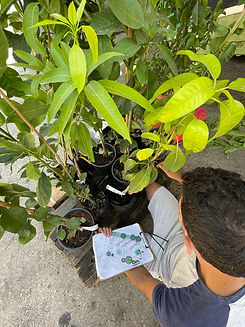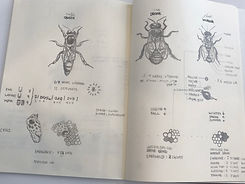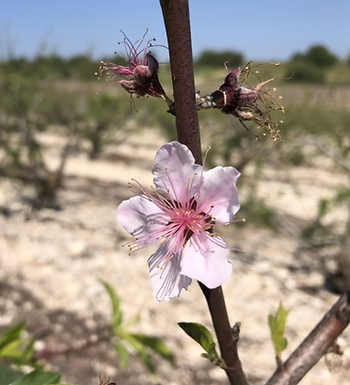Craft's Origin is a workshop where agricultural "upcycling" meets, sustainability and craftsmanship
The desire to live in balance with the environment
At Craft's Origin, we honor the ancient art of candle-making with a commitment to purity, craftsmanship, and sustainability. Our candles are more than just sources of light; they embody our dedication to quality, natural beauty, and the preservation of traditional methods.
We believe in the power of nature and tradition to create products that bring warmth, light, and purity into your home. Each candle we craft is a testament to our values and a promise of excellence.
When we returned to the family farm after a decade in the metropolis, we looked at our surroundings with more mature eyes and a deeper look. It was time to apply the experience we had gained as descriptive knowledge alongside modern consumer life. In the transition back to the village, to nature, to the sources, We arrived with a toolbox that we continue to praise. Combining permaculture theory with the concept of product management in a high-tech environment led us to the insight that we must begin to "renew" what is possible, increase the life cycle of produce and leave the energy entering the economy and give it more use, than let it come out as it entered And inject back into the fields.
The farm has continued for many decades to grow peaches, nectarines, wine grapes and olives on a few hectares around the moshav and with that we decided to start working.
With much respect and appreciation for the old generation of farmers who to this day hold the industry, and in a collaboration born out of necessity to renew, we try to weave the old with the new. Learn from the vast experience of farmers and combine the principles of permaculture, forestry, edible forestry and in general, agriculture that improves and improves its environment instead of depleting its resources and tiring it for several decades until it is abandoned.
The first step upon our return to the area was to plant dozens of fruit trees and pioneer plants to revive the soil, grow a pollinator garden and set up a freedom farm for bees, where Local swarms can complete their life cycle without interruption and help heal the soil, the environment and ourselves.
Out of a deep nostalgic connection to roots, ancient crafts and the old world, "Craft's Origin" was established to bring together old, modern, renewable and ancient agriculture, together with the art and crafts of the old world in an attempt to preserve the magic of simple life and age-old craft.
In the studio we produce in small quantities and with traditional methods, a variety of products that connect to our worlds and headed by them - pure wax candles. Beeswax that we save from the industry and give new life to the raw material in order to raise awareness of the importance of caring for and raising bees at home. Whether in the garden, on the balcony or on the roof. Makor Hamelacha's store also presents products from collaborations with creators, artists and suppliers from fields that are tangent to the simple life worlds of yesteryear.
1. 100% Pure Organic Local Beeswax We source our beeswax locally and ensure it is 100% pure and organic. By supporting local beekeepers, we maintain the natural integrity of our candles and contribute to the sustainability of our environment.
2. Free from Additives and Chemicals Our candles are free from additives and chemicals, burning cleanly without releasing harmful substances. We prioritize purity, ensuring a healthier environment for you and your loved ones.
3. Hand-Dipped and Handcrafted with Traditional Methods Every candle is meticulously hand-dipped and handcrafted using traditional methods. This process not only ensures the highest quality but also honors the artistry and heritage of candle-making.
4. Highest Quality Raw Materials Just as you wouldn't compromise on the ingredients for your finest cuisine, we don't compromise on the raw materials for our candles. We select only the highest quality beeswax and natural ingredients to maintain excellence and integrity in every candle.
5. Commitment to Sustainability We are dedicated to sustainability in every aspect of our production. From sourcing responsibly to minimizing waste, we strive to create a positive impact on our environment.
6. Integrity and Excellence Our candles are a reflection of our commitment to integrity and excellence. Free from petroleum and synthetic materials, they represent the purest form of candle-making, ensuring a safe and enjoyable experience for you.
Through these values, we invite you to experience the beauty, purity, and craftsmanship that define Craft's Origin. Join us in illuminating your space with candles that embody tradition, quality, and a commitment to natural living.
"Agriculture needs to move from large mechanical operations to small farms that are connected only to life itself. Physical existence and the food menu should have a simple place. If this is done, the work becomes pleasant and there is plenty of space for spiritual breathing."
Masnobu Fukuoka
The straw reed revolution is an introduction to natural agriculture

Garden and orchard permaculture
Experimental area and on it A wide variety of edible, medicinal and useful species arranged by layers

Freedom Farm for Bees
When trying to save bees, we are trying to save humanity and the planet as we know it



